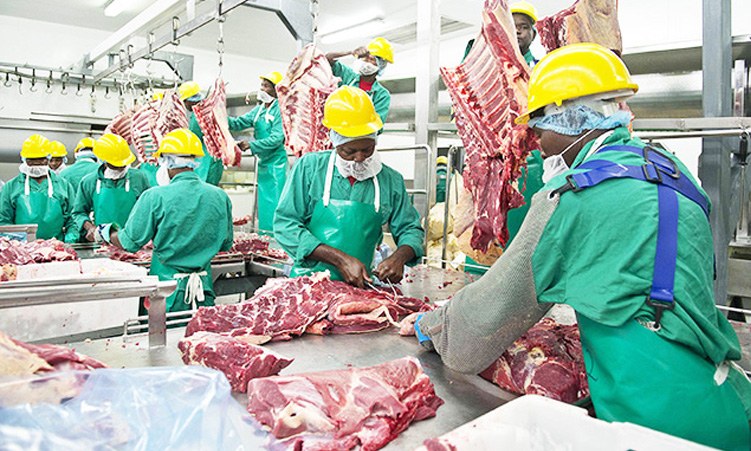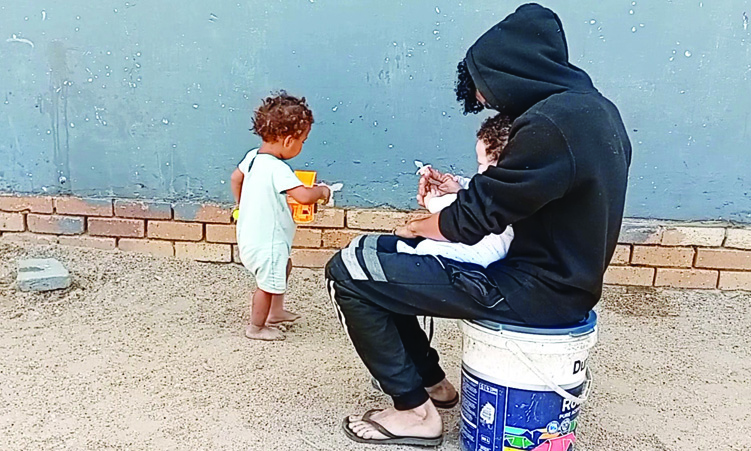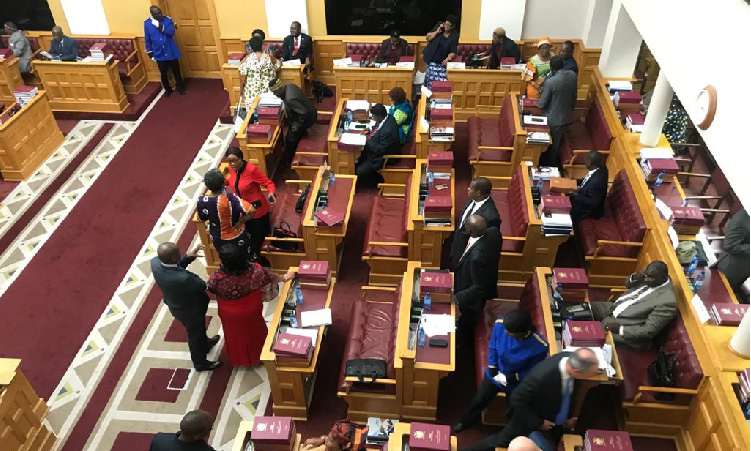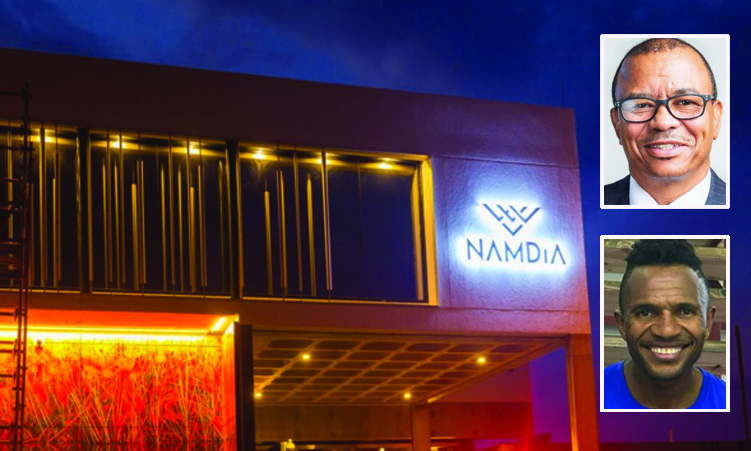AN Interview with Hans-Christian Stroebele, German MP (Green Party), Deputy Chief Whip.
HH: Do you regard the German Minister of Economic Co-operation and Development Minister’s apology [at the Ohamakari commemoration] for the genocide committed against the Herero people as having been overdue? Does the Green Party fully support it? Stroebele: I thanked the Minister [Heidemarie Wieczorek-Zeul] for her clear statement immediately after her return [to Germany]. I fully support her. The Green Party holds the view that we have to officially take responsibility for the extermination war against the Herero and Nama people.HH: The German parliament passed a resolution in June on the war against the Herero people in which no mention was made of the genocide, of guilt or the concentration camps here. The resolution caused great disappointment and bitterness in Namibia. To some extent it still casts a shadow over the speech of the German minister. Do you regard this resolution as a mistake? Was the resolution the result of poor consulting or pressure by the German Foreign Office?Stroebele: The resolution was the right thing because it has put the crimes against the peoples in Namibia on the agenda of the German parliament. Originally the resolution was much longer and clearly named the crimes. Unfortunately, it was shortened a great deal because some raised objections [to it]. However, it would have been much worse if the parliament had made no statement. The political and moral responsibility has been acknowledged.HH: Although the genocide has been acknowledged, a spokesperson from the Social Democratic Party categorically excluded any reparations to the Herero people. This has raised questions in Namibia about whether a genocide committed against blacks is less severe than a genocide against whites. How do you assess the Hereros’ demand for redress?Stroebele: Homicide and genocide cannot be repaired. German payments have been made to the survivors of the holocaust and of forced labour under fascist rule irrespective of the colour of skin. After 100 years, however, a claim for reparations will hardly succeed. Direct victims and perpetrators do not live any more. But I am in favour of Germany acknowledging its responsibility. I am in favour of a fund or a foundation which should not only finance encounters and remembrances of the past in schools or at universities. It could also give material support for land reform; members of the Herero and Nama people could be assisted in buying land and working productively on it.HH: The German Minister stated that the doors have now been opened for a dialogue with the Hereros. How and when should this dialogue begin? Do you think that Chief Riruako, as the traditional leader, should be part of this dialogue?Stroebele:Of course, all legitimate leaders of the Herero and Nama people must be our partners as well as the Namibian Government. The horrible past needs to be addressed together. Nobody must be excluded.Stroebele: I thanked the Minister [Heidemarie Wieczorek-Zeul] for her clear statement immediately after her return [to Germany]. I fully support her. The Green Party holds the view that we have to officially take responsibility for the extermination war against the Herero and Nama people.HH: The German parliament passed a resolution in June on the war against the Herero people in which no mention was made of the genocide, of guilt or the concentration camps here. The resolution caused great disappointment and bitterness in Namibia. To some extent it still casts a shadow over the speech of the German minister. Do you regard this resolution as a mistake? Was the resolution the result of poor consulting or pressure by the German Foreign Office?Stroebele: The resolution was the right thing because it has put the crimes against the peoples in Namibia on the agenda of the German parliament. Originally the resolution was much longer and clearly named the crimes. Unfortunately, it was shortened a great deal because some raised objections [to it]. However, it would have been much worse if the parliament had made no statement. The political and moral responsibility has been acknowledged.HH: Although the genocide has been acknowledged, a spokesperson from the Social Democratic Party categorically excluded any reparations to the Herero people. This has raised questions in Namibia about whether a genocide committed against blacks is less severe than a genocide against whites. How do you assess the Hereros’ demand for redress?Stroebele: Homicide and genocide cannot be repaired. German payments have been made to the survivors of the holocaust and of forced labour under fascist rule irrespective of the colour of skin. After 100 years, however, a claim for reparations will hardly succeed. Direct victims and perpetrators do not live any more. But I am in favour of Germany acknowledging its responsibility. I am in favour of a fund or a foundation which should not only finance encounters and remembrances of the past in schools or at universities. It could also give material support for land reform; members of the Herero and Nama people could be assisted in buying land and working productively on it.HH: The German Minister stated that the doors have now been opened for a dialogue with the Hereros. How and when should this dialogue begin? Do you think that Chief Riruako, as the traditional leader, should be part of this dialogue? Stroebele:Of course, all legitimate leaders of the Herero and Nama people must be our partners as well as the Namibian Government. The horrible past needs to be addressed together. Nobody must be excluded.
Stay informed with The Namibian – your source for credible journalism. Get in-depth reporting and opinions for
only N$85 a month. Invest in journalism, invest in democracy –
Subscribe Now!









